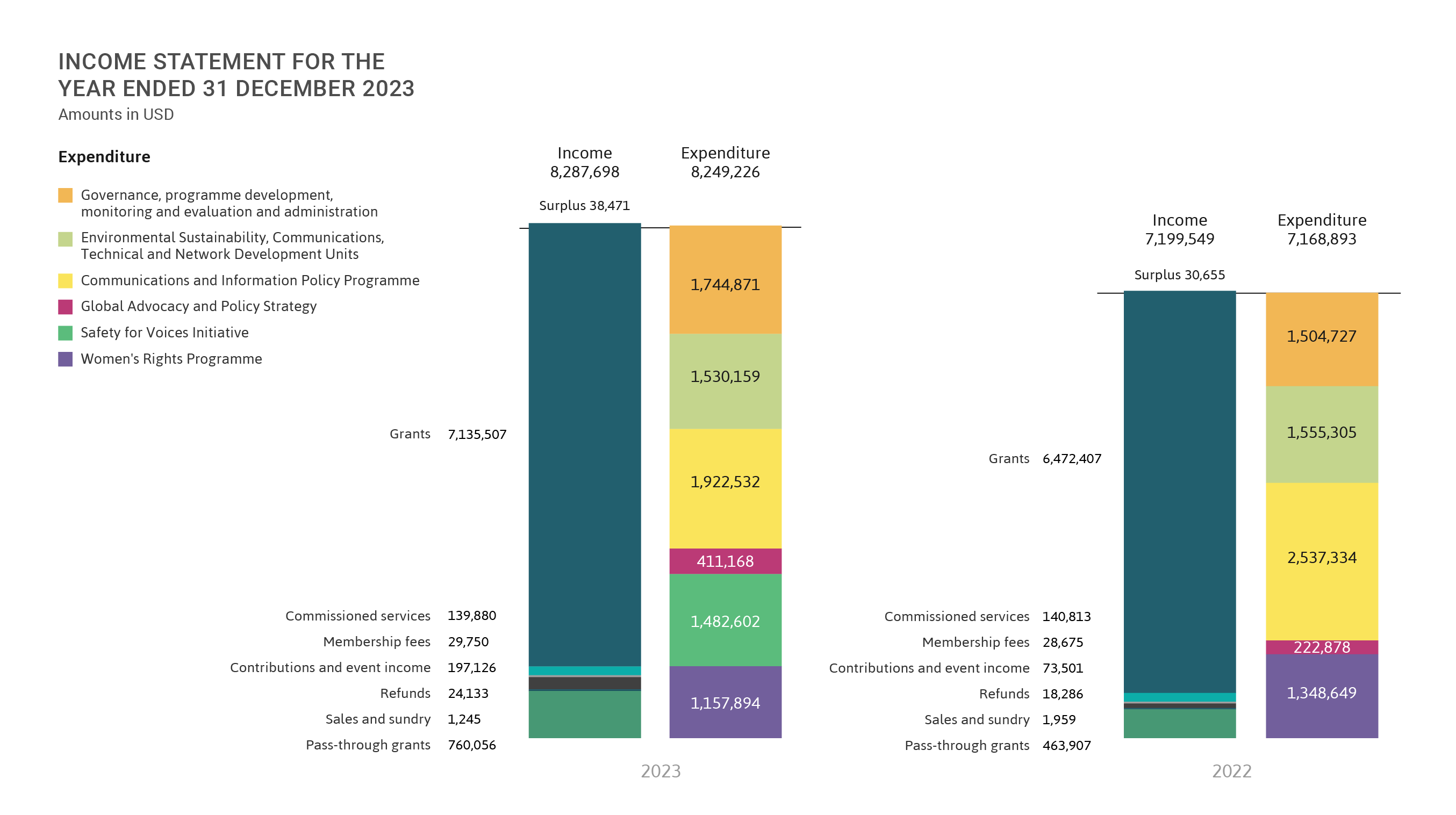Introduction
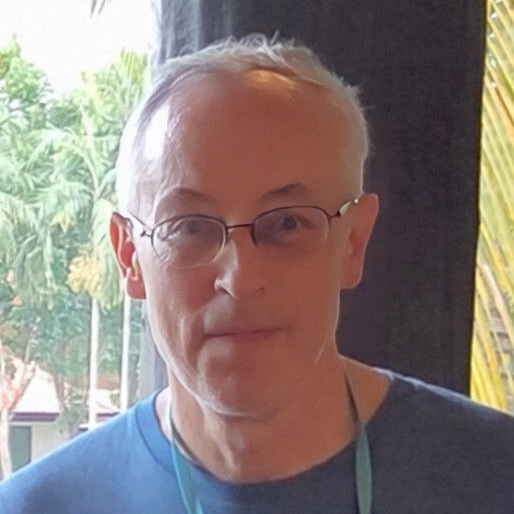
According to Wikipedia, a soul is an immaterial entity that living beings possess, the "essence" or "vital energy" that guides them and gives them purpose. I feel that the new APC strategic plan adopted in 2023 is like a collective soul that guides us to act, even from a distance, as a living organism, as a complex organisation that reflects and becomes even stronger with each plan, this time for the period 2024-2027.
More from LeandroDuring the second half of 2023 we followed a participatory construction process that concluded in December with the vote and approval of the plan, when both the members of the Council and the Board of directors decided to adopt it.
At the meeting in May 2024 we celebrated and talked about how to put it into action. This strategy inspires and guides us in what we do because it is part of who we are, what we believe, our context, where we are going, what and how to do and what results we want to achieve.
I encourage you to reread in detail the the strategic plan document built in 2023, word by word, carefully and with commitment, giving substance to that collective soul that is also combined with the personal and organisational strategies of the association's members.
Although some people and organisations have been in APC for quite some time, all the aspects and all the moments that appear in the strategic plan invite us to know, understand, think, act and contribute to achieving results as part of that collective soul that, ultimately, seeks to use digital technology to empower and connect people instead of excluding them.

2023 was the final year of the last APC strategic cycle, which started in 2020 with the double challenge of commemorating the network's 30th anniversary while transiting a pandemic that called us to deepen the inclusivity, the connectedness and the strengthening of movements that we are part of.
More from ChatIn the last four years we experienced a civil society struggling to be heard, due to the minimising of spaces and a silo-ised agenda. We also faced fragmented policy-making processes, a significant increase in rights violations across the globe and a failure of global governance which deepened inequalities; a growing alienation, and environmental cost, tied to the struggle to regulate the entrenched interests of big tech; and the emergence of a new digital divide. 2023 was not the exception, and the APC community knew it would be a challenging year.
We started 2023 with three priorities that put the APC network at the heart of their implementation and success.
The first was APC's engagement with the Global Digital Compact (GDC) process led by the UN. As policy change actors, our diverse and grounded community significantly contributed to the policy process leading to the Summit of the Future through thematic submissions, interventions in deep-dive sessions and engagement in multistakeholder consultations, calling for the GDC to place human rights, a gender equality agenda and an intersectional feminist perspective at its core.
The second priority was our strategic planning for the upcoming period 2024-2027. By the end of the year, our membership decided on APC's strategic priorities for the next four years, intentionally putting the network at the centre of our approach and leveraging our strength as a bridge builder, connector and convener.
The third priority was preparing for APC’s first in-person convening of members, associates, staff and close partners in seven years. Before the pandemic, in-person member meetings took place every three years. APC's new strategy provides the ideal framework for us to collectively bring to life our re-imagined mission: to strengthen collective organising towards building a transformative movement to ensure that the internet and digital technologies enable social, gender and environmental justice for all people in the next four years.
We ended 2023 with a collective expectation and a sense of excitement in renewing friendships and solidarity when our community comes together in 2024.
About APC
Strategies
We believe that our mission is achieved through five interlinked strategies: research, advocacy, building networks and capacity, communications and outreach. To be instrumental to the APC community, research-based evidence must be communicated effectively in order to support advocacy, which then achieves change as its ultimate goal.
Vision
Our vision is for people to use and shape the internet and digital technologies to create a just and sustainable world, leading to greater care for ourselves, each other and the earth.
Mission
Our mission is to create a just and sustainable world by harnessing the collective power of activists, organisations, excluded groups, communities and social movements, to challenge existing power structures and ensure that the internet is developed and governed as a global public good.
APC’s Strategic Plan 2024-2027
Our new strategic plan is the result of a consultative process with staff, the Board of directors, members and partners, and builds on the lessons and findings of APC’s mid-term evaluation in 2022, as well as the evaluation of our local access initiative over a five-year period.
We believe that new efforts at organising are necessary to bring actors advocating for digital inclusion and digital and internet rights together, and to connect these with other social movements' agendas.
Our Mission
Is to strengthen collective organising towards building a transformative movement to ensure that the internet and digital technologies enable social, gender and environmental justice for all people.
Our Vision
Is for all people, particularly the marginalised, to use and shape the internet and digital technologies to create a just and sustainable world.
Network- and movement-building strategies
- Building knowledge and counter-narratives.
- Convening and connecting actors to strengthen common agendas.
- Capacity building and institutional strengthening.
- Policy advocacy and mobilisation within the network.
- Grantmaking/subgranting.
- Strategic communications.
Long term outcomes by 2027
- Strengthened community-centred connectivity agendas through awareness raising and providing effective support to communities that need viable connectivity.
- Members and partners have strengthened connections and common agendas for advancing digital rights, a feminist internet and environmentally just digital policies and practices.
- Greater capacity to counter dis/misinformation. Collective creation, strengthening and sharing of knowledge to influence policy discourse.
- Co-creation of alternatives and counter-narratives which centre digital inclusion and digital and internet rights and their intersections with environmental justice issues.
- Intersectional feminist voices from the global South contribute to centring feminist perspectives in discourses on technology
- Increased awareness of community-centred connectivity and policy and regulation that enables community-centred connectivity in the global South.
- Increased integration of human rights and environmentally just digital policies and practices through engagement and influence in national, regional and global processes.
- Inclusion of perspectives of marginalised communities in regional and global processes on policies, norms and standards.
- Increased integration into digital policies, norms and standards of rights-based perspectives and agendas of women and people of diverse sexualities and genders.
- Shared understanding of the online and offline threats faced and development of holistic safety and care collective strategies.
- Greater capacity to create and strengthen our digital infrastructure.
- Collective mobilisation in solidarity and support to defenders at risk.
- Greater capacity of feminist activists and gender non-conforming and queer communities to engage with the internet and digital technologies with care, agency, curiosity, playfulness and safety.
- Members and staff have greater knowledge of and stronger connections with each other.
- Members and staff have greater capacity to work together strategically and operationally based on a shared vision and purpose.
- Knowledge management, planning, and MEL systems support collective learning and work prioritisation for deeper impact.
- Greater shared understanding of care and collectively built organisational policies and practices that support our collective well-being, resilience and sustainability.
- Diverse and sustainable funding base.
APC's niche
Strengthening collective organising towards building a powerful movement to advance digital inclusion and digital and internet rights.
Impact
The year 2023 was the last of APC’s previous strategic cycle, which began during a global pandemic that raised intersectional issues of digital security, privacy, surveillance, digitalisation, freedom of expression and further marginalisation of already vulnerable communities, challenging us to navigate new permutations of familiar conundrums.
Our 2020-2023 strategic plan unfolded amid heightened global distress and a pervasive sense of uncertainty and rapid change, marked by the intensification of violence and an escalation of conflicts such as in Palestine, Israel, Sudan, Ethiopia and Myanmar, and a protracted war in Ukraine. It is a context characterised by the rapid digitalisation and datafication of societies, scarred by the resurgence of right-wing nationalism and fundamentalism in many countries, alongside the legitimisation of misogyny and anti-rights discourses, the increasing precarity of Black, brown and diverse bodies, and with fragile economies in the global South attempting to recover from the COVID-19 pandemic.
Throughout these four years we adapted and responded to unforeseen challenges by coming closer than ever to our members and partners, collectively gaining many valuable learnings that strengthened the fabric of civil society and actors working on digital rights and inclusion.
For more, please see our previous annual reports for 2020, 2021 and 2022.
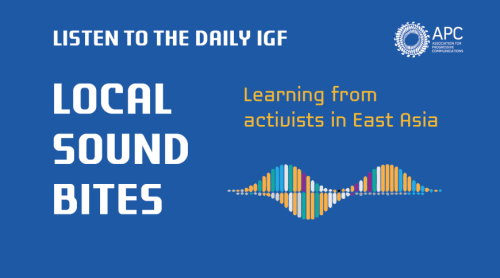
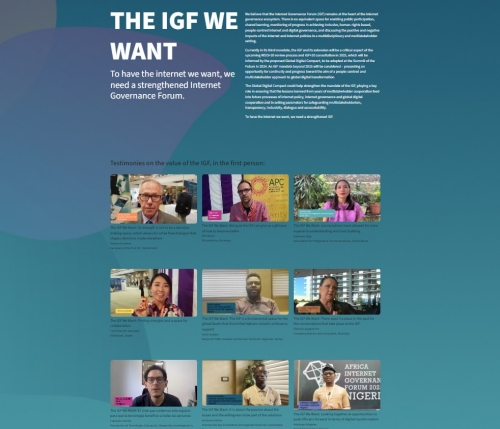
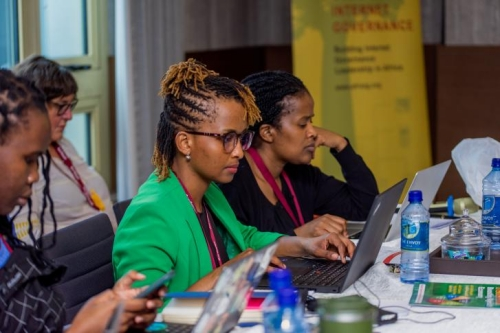
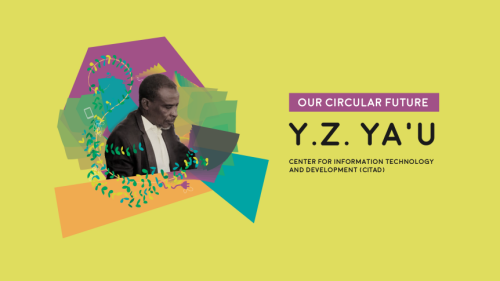
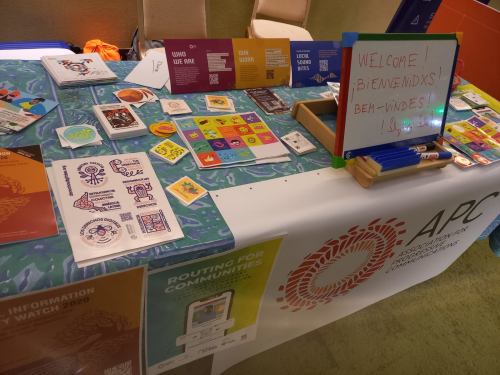
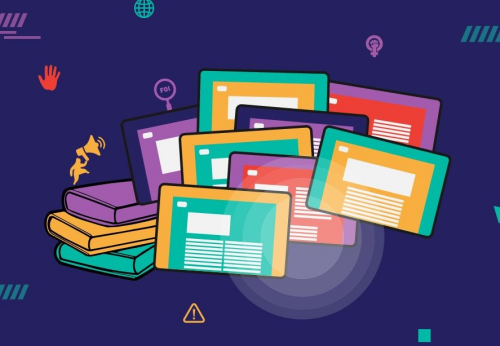
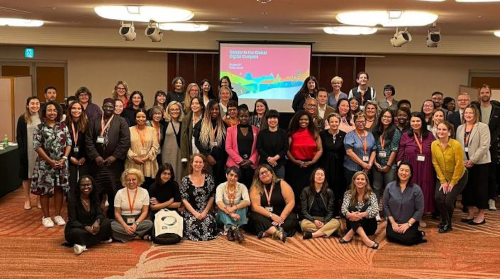
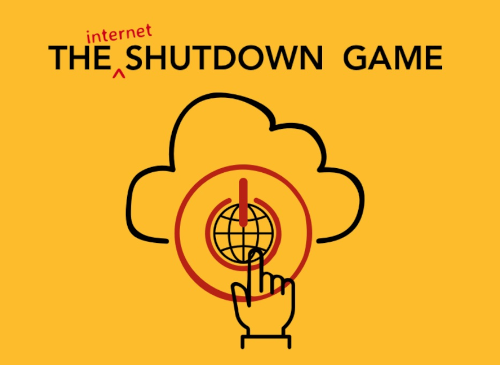
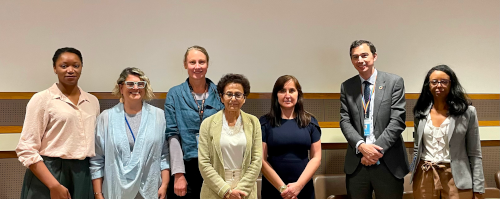
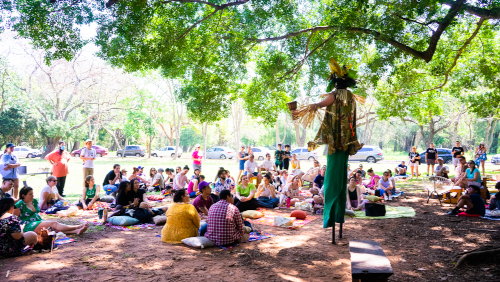
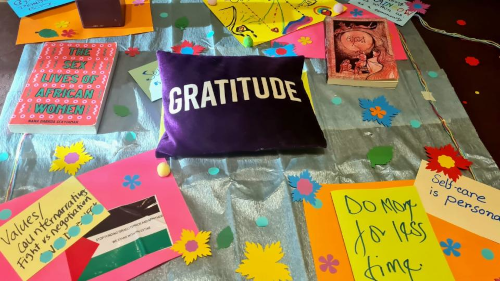
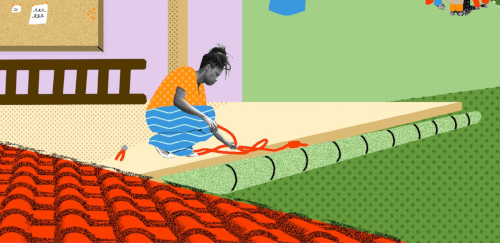
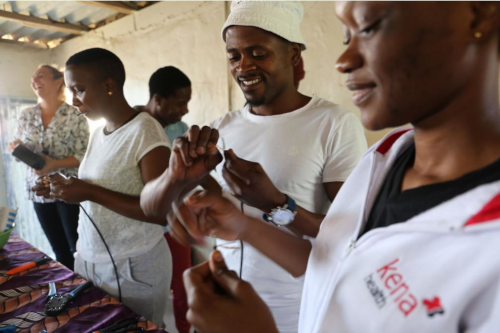
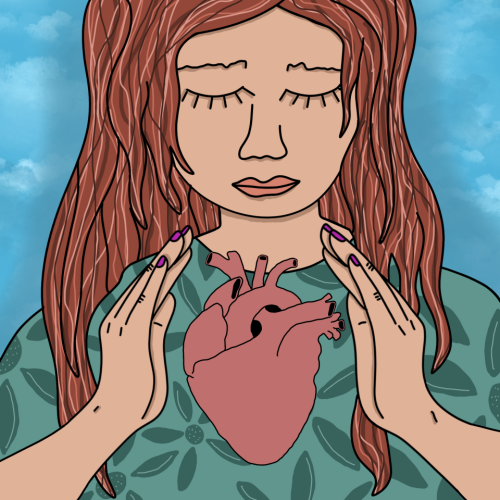
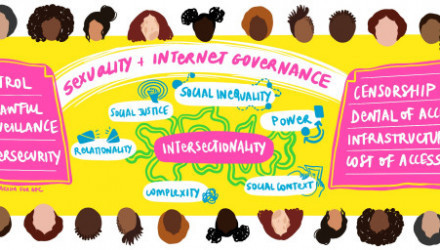
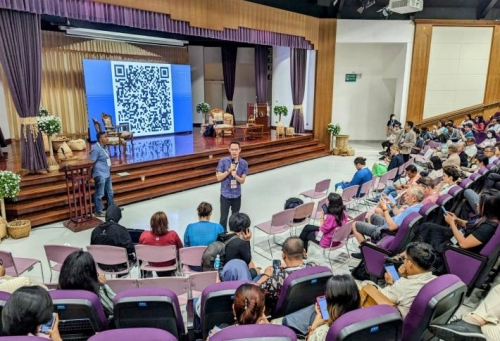
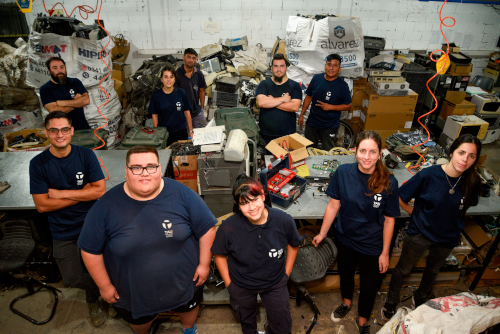
Member grants
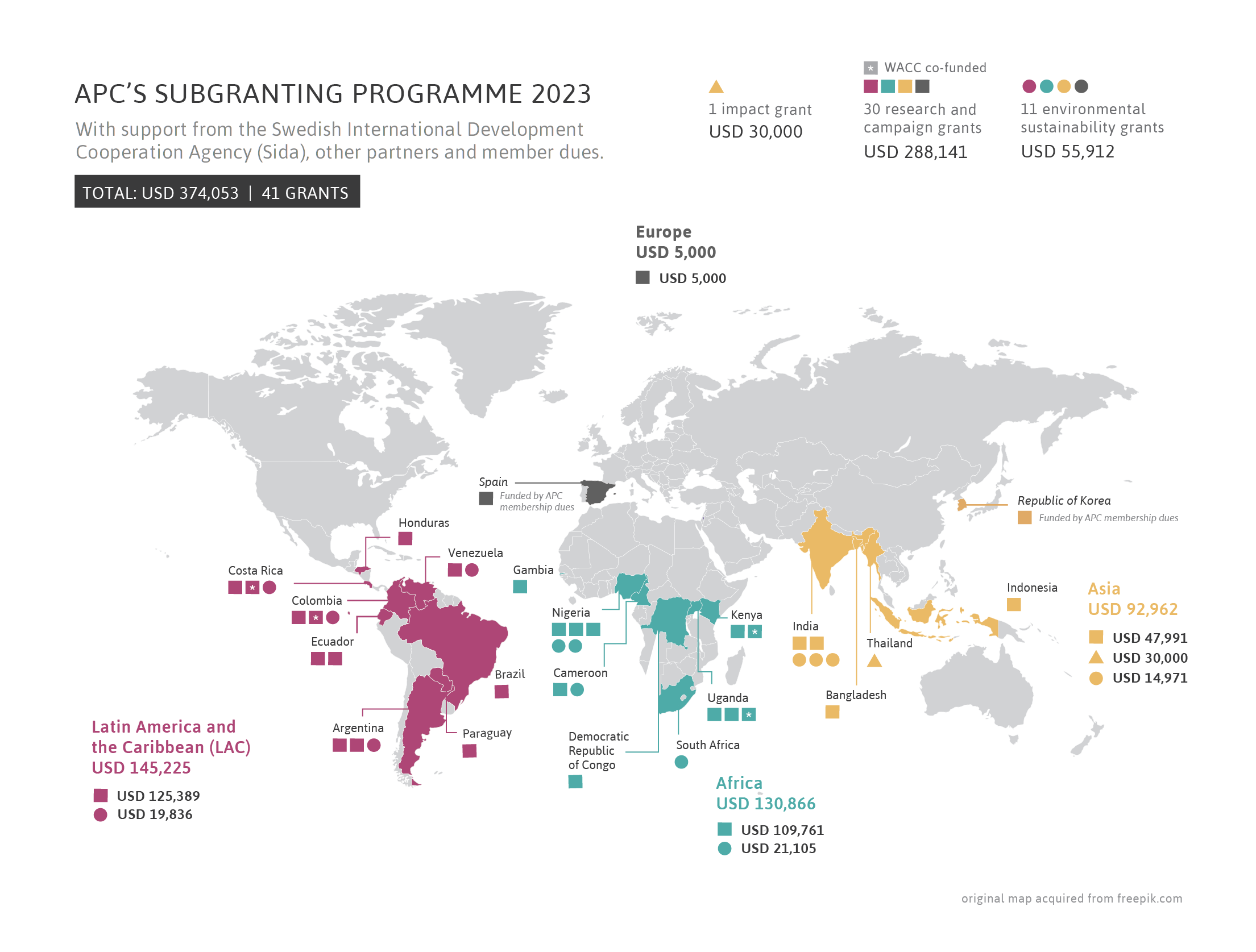
2023 was the seventh year of APC’s subgranting programme, implemented with support from the Swedish International Development Cooperation Agency (Sida), other partners and member dues. This was the last year of the 2020-2024 subgrants cycle.
These subgrants are aimed at enabling our member organisations to contribute towards achieving APC’s vision.
Two types of grants were made available: Research and Campaign Grants and Environmental Sustainability Grants. Only one impact grant was implemented for the amount of USD 30,000.
The Research and Campaign Grants support local activities that contribute to members’ advocacy work and institutional strengthening and are also meant to enable members to participate in APC-wide campaigns.
The Environmental Sustainability Grants support environmental justice and sustainability activities aligned with APC’s Strategic Plan.
During 2023, a total of USD 374,053 in financial support was shared with APC members to implement 41 projects. Of these, 30 were implemented with the support of Research and Campaign Grants that totalled USD 288,141 while the remaining 11 projects were funded by Environmental Sustainability Grants that totalled USD 55,912.
You can find short descriptions of projects funded with Research and Campaign Grants here and of projects that received Environmental Sustainability Grants here..
Publications
Our members
In December 2023, APC had 62 organisational members and 41 individual associates active in 56 different countries, with the majority based in the global South.
APC member organisations
-
Cameroon
-
Congo, Democratic Republic of
-
Congo, Republic of
-
Gambia
-
Kenya
-
Nigeria
-
Senegal
-
South Africa
-
Tanzania
-
Uganda
-
Bangladesh
-
India
-
Indonesia
-
Japan
-
Malaysia
-
Nepal
-
Pakistan
-
Philippines
-
South Korea
-
Taiwan
-
Bulgaria
-
Catalonia/Spain
-
Macedonia
-
Argentina
-
Brazil
-
Chile
-
Colombia
-
Costa Rica
-
Ecuador
-
Mexico
-
Paraguay
-
Venezuela
-
Palestine/Israel
-
Egypt
-
Lebanon
Individual associates
-
Argentina
- Damian Loreti
-
Australia
- Andrew Garton
- Sylvia Cadena
- Mitra Ardron
-
Brazil
- Vera Vieira
-
Canada
- Stéphane Couture
- Mallory Knodel
-
Colombia
- Mario Morales Rincón
- Ariel Barbosa
-
Congo, Democratic Republic of
- Patience Luyeye
-
Czech Republic
- Honza Malík
-
Ethiopia
- Melaku Girma
-
Guinea
- Serge Ziehi
-
India
- Japleen Pasricha
- Gayatri Khandhadai
-
Italy
- Leonardo Maccari
-
Jordan
- Inam Ali
-
Kenya
- Muriuki Mureithi
-
Malaysia
- Gayathry Venkiteswaran
- Jac sm Kee
-
Mexico
- Olinca Marino
-
Netherlands
- Rolf Kleef
-
New Zealand
- Joy Liddicoat
-
Paraguay
- Arturo Bregaglio
-
Peru
- Eiko Kawamura
-
South Africa
- Anriette Esterhuysen
- Towela Nyirenda-Jere
-
South Africa/Germany
- Alex Comninos
-
Spain
- Sol Luca de Tena
-
Sweden
- Helen Belcastro
-
Tunisia
- Rafik Dammak / رفيق دمق
-
Uganda
- Helen Nyinakiiza
- Brian Byaruhanga
-
United States
- Avri Doria
- Jane Coffin
- Mai Ishikawa Sutton
- Mark Graham
-
Uruguay
- Pablo Accuosto
-
Zimbabwe
- Koliwe Majama
- Natasha Msonza
- Patience Mandishona
Governance
Board of directors
- Leandro Navarro, Associació Pangea - Coordinadora Comunicació per a la Cooperació, Spain (chair)
- Bishakha Datta / বিশাখা দত্ত, Point of View / পয়েন্ট অফ ভিউ, India (vice-chair)
- Sylvie Siyam, PROTEGE QV, Cameroon
- Julián Casabuenas G., Colnodo, Colombia (secretary)
- Pavel Antonov, BlueLink.net, Bulgaria
- Oona Castro, Nupef, Brazil
- Chat Garcia Ramilo, APC, Philippines (executive director)
Council representatives
-
7amleh – Arab Center for Social Media Advancement / حملة- المركز العربي لتطوير الإعلام الاجتماعي
- Nadim Nashif / ديم ناشف
- Marwa Hanna
-
Acción Ecológica
- Ivonne Yanez
- Cecilia Cherrez
-
AlterMundi
- Jésica Giudice
- Nicolás Echániz
-
Alternatives
- Feroz Mehdi
- Jeremy Bouchez
-
Arid Lands Information Network (ALIN)
- James Nguo
-
AZUR Développement
- Sylvie Niombo
- Victorine Diaboungana
-
BlueLink.net
- Pavel Antonov
- Polina Slavcheva
-
Body & Data
- Shubha Kayastha
- Rita Baramu
-
Bytesforall, Bangladesh
- Partha Sarker
-
Centre for Information Technology and Development (CITAD)
- Yunusa Yau
- Asabe Mohammed
-
Código Sur
- Nikole Yanez Amaya
- San Hoerth
-
Collaboration on International ICT Policy for East and Southern Africa (CIPESA)
- Lillian Nalwoga
- Paul Kimumwe
-
Colnodo
- Julián Casasbuenas G.
- Olga Paz Martínez
-
Computer Aid International
- Keith Sonnet
-
Derechos Digitales
- Jamila Venturini
- Juan Carlos Lara
-
Digital Empowerment Foundation (DEF) / डिजिटल एमपोवेर्मेंट फ़ाउंडेशन
- Osama Manzar / ओसामा मंजर
- Arpita Kanjilal
-
EngageMedia
- Phet Sayo
-
eQualit.ie
- Michel Lambert
- Miguel Trujilo
-
Fantsuam Foundation
- John Dada
- Theresa Tafida
-
Foundation for Media Alternatives (FMA)
- Lisa Garcia
- Philip Arnold (Randy) Tuano
-
Fundació Privada per a la Xarxa Oberta, Lliure i Neutral (guifi.net)
- Ramón Roca
- Pedro Vílchez
-
Fundación Escuela Latinoamericana de Redes (EsLaRed)
- Edmundo Vitale
- Lourdes GdP
-
GreenNet
- Ed Maw
- Cedric Knight
-
International Association of Women in Radio and Television - Kenya (IAWRT-K)
- Racheal Nakitare
- Josephine Karani
-
Intervozes
- Olívia Bandeira
- Paulo Mello
-
Japan Computer Access for Empowerment (JCAFE) / 市民コンピュータコミュニケーション研究会
- Onoda Mitoye / 小野田美都江
-
JCA-NET
- Hamada Tadahisa (Taratta) / 浜田忠久
-
Jokkolabs Banjul
- Anna Anet Sambou
- Poncelet Ileleji
-
Kenya ICT Action Network (KICTANet)
- Grace Githaiga
- Elizabeth Orembo
-
Korean Progressive Network Jinbonet / 진보네트워크센터
- Byoung-il Oh / 오병일
- Yaping Dyung
-
LaLibre Tecnologías Comunitarias
- Jonathan Finlay
- Cecilia López
-
LaborNet
- Steve Zeltzer
-
May First Movement Technology
- Jaime Villarreal
- Jamie McClelland
-
Media Awareness and Justice Initiative (MAJI)
- Okoro Onyekachi Emmanuel
- Ifunanya Ezewuzie Agatha
-
Media Matters for Democracy (MMfD)
- Asad Baig
- Yasal Munim
-
Metamorphosis Foundation
- Bardhyl Jashari
- Tamara Resavska
-
Motoon
- Manal Hassan
-
Nodo TAU
- Florencia Roveri
- Eduardo Rodríguez
-
Núcleo de Pesquisas, Estudos e Formação (Nupef)
- Oona Castro
- Carlos Afonso
-
Open Culture Foundation (OCF)
- SzuHui Huang / 黃詩惠
- Rosa Guo
-
Open Net
- Kyung Sin Park
- Kyoungmi Oh
-
Pangea
- Leandro Navarro
- Lorena Merino
-
Persatuan Kesedaran Komuniti Selangor (EMPOWER)
- Ayesha Sofia
-
Point of View / পয়েন্ট অফ ভিউ
- Bishakha Datta / বিশাখা দত্ত
- Debarati Das
-
Pollicy
- Neema Iyer
- Irene Mwendwa
-
PROTEGE QV
- Sylvie Siyam
- Avis Momeni
-
Rhizomatica
- Peter Bloom
- Erick Huerta
-
Riseup
- Micah Anderson
- Guido
-
Rudi International
- Arsene Tungali
- Blaise Ndola
-
Senegalese Association of ICT Users (ASUTIC)
- Ndiaga Gueye
- Mamadou Diao
-
Servelots / ಸರ್ವ್ಲಾಟ್ಸ್
- Dinesh TB / ದಿನೇಶ್ ಟಿ ಬಿ
- Shalini A / ಶಾಲಿನಿ ಎ
-
Social Media Exchange (SMEX)
- Mohamad Najem
- Saleh Moussa
-
Society for Promotion of Alternative Computing and Employment (SPACE)
- Arun Madhavan Pillai
- Raji P R
-
Strawberrynet Foundation
- Rozi Bakó
- Misi Bakó
-
Sulá Batsú
- Kemly Camacho
- Christian Hidalgo García
-
TEDIC
- Maricarmen Sequera
- Eduardo Enrique Carrillo
-
Unwanted Witness
- Dorothy Mukasa
- Allan Kigozi
-
Voices for Interactive Choice and Empowerment (VOICE) / ভয়েসেস ফর ইন্টারেক্টিভ চয়েস এন্ড এমপাওয়ামেন্ট (ভয়েস)
- Ahmed Swapan / আহমেদ স্বপন মাহমুদ
- Farhana Akter
-
Women of Uganda Network (WOUGNET)
- Sandra Aceng
- Amuku Isaac
-
Zaina Foundation
- Zaituni Njovu
- Setiel Masaki
-
Zenzeleni Networks NPC
- Shaun Pather
- Yumna Panday
-
7amleh – Arab Center for Social Media Advancement / حملة- المركز العربي لتطوير الإعلام الاجتماعي
- Nadim Nashif / ديم ناشف
- Marwa Hanna
-
Acción Ecológica
- Ivonne Yanez
- Cecilia Cherrez
-
AlterMundi
- Jésica Giudice
- Nicolás Echániz
-
Alternatives
- Feroz Mehdi
- Jeremy Bouchez
-
Arid Lands Information Network (ALIN)
- James Nguo
-
AZUR Développement
- Sylvie Niombo
- Victorine Diaboungana
-
BlueLink.net
- Pavel Antonov
- Polina Slavcheva
-
Body & Data
- Shubha Kayastha
- Rita Baramu
-
Bytesforall, Bangladesh
- Partha Sarker
-
Centre for Information Technology and Development (CITAD)
- Yunusa Yau
- Asabe Mohammed
-
Código Sur
- Nikole Yanez Amaya
- San Hoerth
-
Collaboration on International ICT Policy for East and Southern Africa (CIPESA)
- Lillian Nalwoga
- Paul Kimumwe
-
Colnodo
- Julián Casasbuenas G.
- Olga Paz Martínez
-
Computer Aid International
- Keith Sonnet
-
Derechos Digitales
- Jamila Venturini
- Juan Carlos Lara
-
Digital Empowerment Foundation (DEF) / डिजिटल एमपोवेर्मेंट फ़ाउंडेशन
- Osama Manzar / ओसामा मंजर
- Arpita Kanjilal
-
EngageMedia
- Phet Sayo
-
eQualit.ie
- Michel Lambert
- Miguel Trujilo
-
Fantsuam Foundation
- John Dada
- Theresa Tafida
-
Foundation for Media Alternatives (FMA)
- Lisa Garcia
- Philip Arnold (Randy) Tuano
-
Fundació Privada per a la Xarxa Oberta, Lliure i Neutral (guifi.net)
- Ramón Roca
- Pedro Vílchez
-
Fundación Escuela Latinoamericana de Redes (EsLaRed)
- Edmundo Vitale
- Lourdes GdP
-
GreenNet
- Ed Maw
- Cedric Knight
-
International Association of Women in Radio and Television - Kenya (IAWRT-K)
- Racheal Nakitare
- Josephine Karani
-
Intervozes
- Olívia Bandeira
- Paulo Mello
-
Japan Computer Access for Empowerment (JCAFE) / 市民コンピュータコミュニケーション研究会
- Onoda Mitoye / 小野田美都江
-
JCA-NET
- Hamada Tadahisa (Taratta) / 浜田忠久
-
Jokkolabs Banjul
- Anna Anet Sambou
- Poncelet Ileleji
-
Kenya ICT Action Network (KICTANet)
- Grace Githaiga
- Elizabeth Orembo
-
Korean Progressive Network Jinbonet / 진보네트워크센터
- Byoung-il Oh / 오병일
- Yaping Dyung
-
LaLibre Tecnologías Comunitarias
- Jonathan Finlay
- Cecilia López
-
LaborNet
- Steve Zeltzer
-
May First Movement Technology
- Jaime Villarreal
- Jamie McClelland
-
Media Awareness and Justice Initiative (MAJI)
- Okoro Onyekachi Emmanuel
- Ifunanya Ezewuzie Agatha
-
Media Matters for Democracy (MMfD)
- Asad Baig
- Yasal Munim
-
Metamorphosis Foundation
- Bardhyl Jashari
- Tamara Resavska
-
Motoon
- Manal Hassan
-
Nodo TAU
- Florencia Roveri
- Eduardo Rodríguez
-
Núcleo de Pesquisas, Estudos e Formação (Nupef)
- Oona Castro
- Carlos Afonso
-
Open Culture Foundation (OCF)
- SzuHui Huang / 黃詩惠
- Rosa Guo
-
Open Net
- Kyung Sin Park
- Kyoungmi Oh
-
Pangea
- Leandro Navarro
- Lorena Merino
-
Persatuan Kesedaran Komuniti Selangor (EMPOWER)
- Ayesha Sofia
-
Point of View / পয়েন্ট অফ ভিউ
- Bishakha Datta / বিশাখা দত্ত
- Debarati Das
-
Pollicy
- Neema Iyer
- Irene Mwendwa
-
PROTEGE QV
- Sylvie Siyam
- Avis Momeni
-
Rhizomatica
- Peter Bloom
- Erick Huerta
-
Riseup
- Micah Anderson
- Guido
-
Rudi International
- Arsene Tungali
- Blaise Ndola
-
Senegalese Association of ICT Users (ASUTIC)
- Ndiaga Gueye
- Mamadou Diao
-
Servelots / ಸರ್ವ್ಲಾಟ್ಸ್
- Dinesh TB / ದಿನೇಶ್ ಟಿ ಬಿ
- Shalini A / ಶಾಲಿನಿ ಎ
-
Social Media Exchange (SMEX)
- Mohamad Najem
- Saleh Moussa
-
Society for Promotion of Alternative Computing and Employment (SPACE)
- Arun Madhavan Pillai
- Raji P R
-
Strawberrynet Foundation
- Rozi Bakó
- Misi Bakó
-
Sulá Batsú
- Kemly Camacho
- Christian Hidalgo García
-
TEDIC
- Maricarmen Sequera
- Eduardo Enrique Carrillo
-
Unwanted Witness
- Dorothy Mukasa
- Allan Kigozi
-
Voices for Interactive Choice and Empowerment (VOICE) / ভয়েসেস ফর ইন্টারেক্টিভ চয়েস এন্ড এমপাওয়ামেন্ট (ভয়েস)
- Ahmed Swapan / আহমেদ স্বপন মাহমুদ
- Farhana Akter
-
Women of Uganda Network (WOUGNET)
- Sandra Aceng
- Amuku Isaac
-
Zaina Foundation
- Zaituni Njovu
- Setiel Masaki
-
Zenzeleni Networks – NPC
- Shaun Pather
- Yumna Panday
Staff team in 2023
- Executive director: Chat Garcia Ramilo, Philippines
- Operations director: Karen Banks, Australia
- Global governance lead: Valeria Betancourt, Ecuador
- Programmes manager: Jan Moolman, South Africa (until October 2023)
- Co-manager: Kathleen Diga, South Africa
- Co-manager: Carlos Rey-Moreno, Australia
- Gender and women’s engagement coordinator: Cynthia El Khoury, Canada
- Communications associate: Débora Prado, Brazil *
- Senior finance officer: Fatima Bhyat, South Africa **
- APC Labs-Community Networks coordinator: Michael Jensen, Portugal
- Programme administrator: Ndunge Kiundi, Kenya
- Foundational technology development coordinator: Nicolás Andrés Pace, Argentina (until December 2023)
*Located in both the Local Access Programme and the Communications team.
** Located in both the Local Access Programme and the Finance team.
- Manager: Paula Martins, Canada
- Global policy advocacy coordinator: Verónica Ferrari, Argentina
- Asia digital rights lead: Pavitra Ramanujam, India
- Administrative associate: Cho, Thailand
- Finance officer: Gladys, Philippines
- Africa regional strategy lead: Peace Oliver Amuge, Uganda
- Environmental justice co-lead: Development and coordination: shawna finnegan, Canada
- Co-manager: Katerina Fialova, Czech Republic
- Co-manager: namita aavriti, India
- Capacity building strategy Lead: Jennifer Radloff, South Africa
- Feminist Internet Research Network (FIRN) project coordinator: Tigist Hussen, South Africa
- GenderIT editor: Hija Kamran, Canada
- Feminist Tech eXchange (FTX) coordinator: Narrira Lemos de Souza, Brazil (from August 2023)
- Our Voices, Our Futures project lead coordinator: Sheena G. Magenya, South Africa
- Our Voices, Our Futures project coordinator: Smita Vanniyar, India
- Our Voices, Our Futures administrator: Catherine Lwangu, Kenya (from April 2023)
- Latin American capacity building and networking coordinator: Erika Smith, Mexico
- Women's rights policy advocacy coordinator: Karla Velasco Ramos, Mexico
- WRP administration coordinator: Mehar Un Neesa, Pakistan
- Consortium manager: Sadaf Khan, Pakistan
- Finance and administration coordinator: Muhamed Ali, Pakistan
- Subgranting coordinator: Carla Vitória Barbosa, Brazil
- Communications manager: Flavia Fascendini, Argentina
- Media outreach lead: Leila Nachawati Rego, Spain
- Language coordinator: Lori Nordstrom, Uruguay
- Publications and multimedia coordinator: Cathy Chen, Canada/Taiwan
- Content production and curation lead/GISWatch coordinator: Maja Romano, Canada
- Lead editor: Gaurav Jain, India
- Communications associate: Débora Prado, Brazil *
* Located in both the Local Access Programme and the Communications team.
- Network and membership building coordinator: Karel Novotný, Portugal
- Grants coordinator: Vassilis Chryssos, Greece
- Resource mobilisation coordinator: Natalia Tariq, Pakistan
- Executive administrator: Liy Yusof, Southeast Asia
- Finance manager (interim): Karen Banks, Australia (from May 2023)
- Finance manager: Maya Sooka, South Africa (until May 2023)
- Senior finance officer: Fatima Bhyat, South Africa *
- Finance coordinator: Christine Nyambo, Zimbabwe
- Senior finance administrator: Nino Chubinidze, Georgia
* Located in both the Local Access Programme and the Finance team.
- Operations lead: hvale vale, Bosnia and Herzegovina
- CTE (Closer than Ever) online spaces organiser: Shivani Lal, India
- Convenings coordinator: Pamela Ariza, Chile
- People and culture manager: Delphine Ménard, Germany
- HR and administrative officer: Eunice Mwesigwa, South Africa
- Technical team coordinator: Roxana Bassi, Argentina
- Technical systems developer: Adolfo Dunayevich Garber, Mexico
- Senior technical officer: Maja Kraljic, Slovenia
- Technical system administrator (sysadmin) (until September 2023): kosa, Mexico
- Technical system administrator (sysadmin) (from October 2023): mirto, Czechia
- Tech support and developer: Avinash Kuduvalli, India
- Tech support and online event specialist: igu, France
- Website developer: Liz Probert, United Kingdom (from July 2023)
- Senior advisor on global and regional internet governance: Anriette Esterhuysen, South Africa (from March 2023)
- Strategic plan writer and GISWatch editor: Alan Finlay, Argentina/South Africa (from May 2023)
Finances
Financial supporters
-
Astraea Foundation
- CommsLabs Program for Eastern Europe and Central Asia (USAID sub-award)
-
Dutch Ministry of Foreign Affairs
- Sustaining Defenders through Feminist Holistic Security (SDFHS)
-
Dutch Ministry of Foreign Affairs, through the Directorate of Development Cooperation (DGIS) FLOW II Fund via Creating Resources for Empowerment in Action (CREA)
- Our Voices, Our Futures
-
Ford Foundation
- General support and core and project support for institutional strengthening
-
Foreign Commonwealth and Development Office (FCDO)
- Supporting Community-Led Approaches to Addressing the Digital Divide
- Gender Matters in Cybersecurity
-
Foundation for a Just Society (FJS)
- Restricted communications support to APC’s Women’s Rights Programme project GenderIT
-
German Corporation for International Cooperation (GIZ)
- Community Development Cameroon
-
Global Fund for Women (GFW)
- General support grant
-
International Development Research Centre (IDRC)
- Making a Feminist Internet Research Network
- Resistance and Resilience: Collaborative responses to online attacks on environmental defenders
-
Luminate
- Southeast Asia Digital Rights Collaborative (DRC)
-
Oak Foundation
- Unrestricted support to the APC Women's Rights Programme
-
Open Society Institute
- Support for community networks
-
Stiftung Auxilium Foundation managed by Porticus Foundation
- Reclaim Your Rights: Strengthening the digital rights movement in Asia
-
Swedish International Development Cooperation Agency (Sida)
- Core support for the APC Strategic Action Plan 2020-2023
-
Swiss Philanthropy Foundation
- Creating infrastructure of care in the digital space
-
United Nations High Commissioner for Refugees (UNHCR )
- Impact of misinformation, disinformation and hate speech is mitigated
-
Wellspring Philanthropic Fund (WPF)
- Women’s Rights; Online Gender-Based Violence Research; Social and Environmental Justice
-
ARTICLE 19
- Bridging policy and technology to encode human rights in internet infrastructure
-
African Union Commission
- Support for the African Internet Governance Forum
-
Asia Pacific Network Information Centre Foundation (APNIC)
- Support for community networks
-
Foreign Commonwealth and Development Office (FCDO)
- Support for the African Internet Governance Forum
-
German Corporation for International Cooperation (GIZ)
- Support for the African School on Internet Governance
-
Global Partners Digital
- Advancing Digital Inclusion and Shaping Inclusive and Rights-Respecting Norms
-
Huawei Technology
- Support for the African Internet Governance Forum
-
ICANN
- Support for the African Internet Governance Forum and African School on Internet Governance
-
Internet Society (ISOC)
- Support for the African School on Internet Governance and Community Networks
-
Meta
- Support for the African Internet Governance Forum
-
Mozilla Foundation
- Support for the African School on Internet Governance
-
Public Internet Registry
- Support for the African School on Internet Governance
-
United Nations New York Office
- Support for the African Internet Governance Forum
APC financial statements for 2023
Balance sheet at 31 December 2023
| 2023 (USD) | 2022 (USD) | |
|---|---|---|
| ASSETS | 6,033,392 | 5,762,839 |
| Non-current assets | 159 | 317 |
| Equipment | 159 | 317 |
| Current assets | 6,033,232 | 5,762,523 |
| Accounts receivable | 45,036 | 81,589 |
| Accrued income | 397,902 | 283,157 |
| Cash and cash equivalents | 5,590,295 | 5,397,777 |
| TOTAL ASSETS | 6,033,392 | 5,762,839 |
| RESERVES AND LIABILITIES | 6,033,392 | 5,762,839 |
| Reserves and sustainability funds | 845,631 | 807,160 |
| Sustainability fund | 760,678 | 746,551 |
| Programme funds | 37,744 | - |
| General fund | 47,209 | 60,610 |
| Current liabilities | 5,187,760 | 4,955,679 |
| Accounts payable | 258,183 | 328,329 |
| Deferred income from grants | 4,762,062 | 4,566,925 |
| Grant refundable | 99,908 | - |
| Provision for leave pay | 67,608 | 60,426 |
| TOTAL RESERVES AND LIABILITIES | 6,033,392 | 5,762,839 |
Income statement for the year ended 31 December 2023
2023 (USD)
2022 (USD)
INCOME
8,287,698
7,199,549
Grants
7,135,507
6,472,407
Other income
392,134
263,234
Commissioned services
139,880
140,813
Membership fees
29,750
28,675
Contributions and event income
197,126
73,501
Refunds
24,133
18,286
Sales and sundry
1,245
1,959
Passthrough grants
760,056
463,907
EXPENDITURE
8,249,226
7,168,893
Governance, Programme Development, Monitoring and
Evaluation and Administration
1,744,871
1,504,727
Environmental Sustainability, Communications, Technical and Network Development Units
1,530,159
1,555,305
Communications and Information Policy Programme
1,922,532
2,537,334
Global Advocacy and Policy Strategy
411,168
222,878
Safety for Voices Initiative
1,482,602
Women’s Rights Programme
1,157,894
1,348,649
SURPLUS / (DEFICIT) FOR THE YEAR
38,471
30,655
| 2023 (USD) | 2022 (USD) | |
|---|---|---|
| INCOME | 8,287,698 | 7,199,549 |
| Grants | 7,135,507 | 6,472,407 |
| Other income | 392,134 | 263,234 |
| Commissioned services | 139,880 | 140,813 |
| Membership fees | 29,750 | 28,675 |
| Contributions and event income | 197,126 | 73,501 |
| Refunds | 24,133 | 18,286 |
| Sales and sundry | 1,245 | 1,959 |
| Passthrough grants | 760,056 | 463,907 |
| EXPENDITURE | 8,249,226 | 7,168,893 |
| Governance, Programme Development, Monitoring and Evaluation and Administration | 1,744,871 | 1,504,727 |
| Environmental Sustainability, Communications, Technical and Network Development Units | 1,530,159 | 1,555,305 |
| Communications and Information Policy Programme | 1,922,532 | 2,537,334 |
| Global Advocacy and Policy Strategy | 411,168 | 222,878 |
| Safety for Voices Initiative | 1,482,602 | |
| Women’s Rights Programme | 1,157,894 | 1,348,649 |
| SURPLUS / (DEFICIT) FOR THE YEAR | 38,471 | 30,655 |
Note: Detailed information is available in the audited financial statements for 2023.

